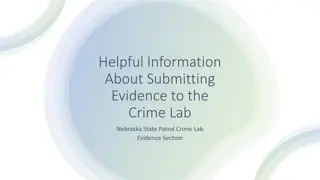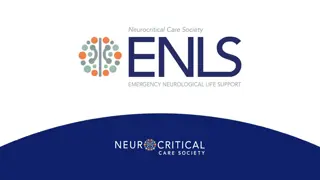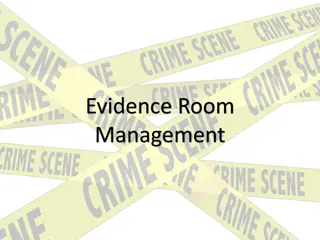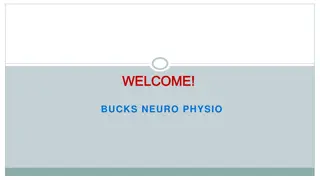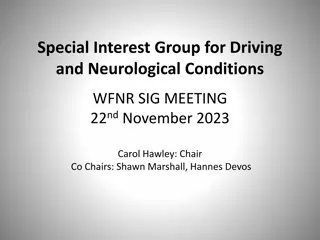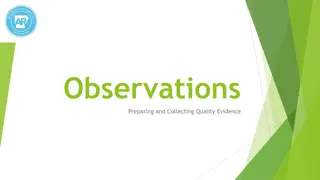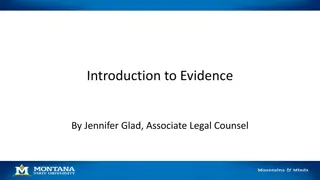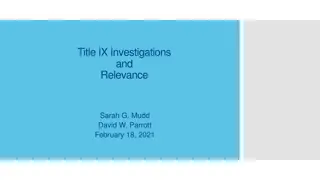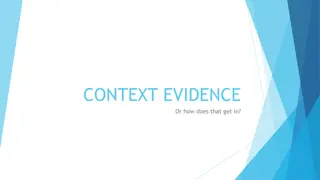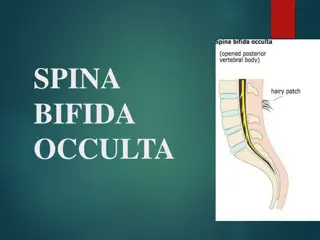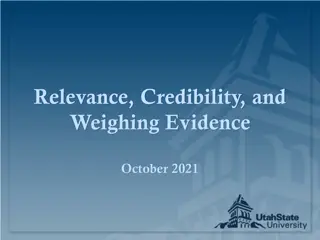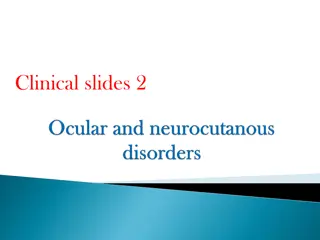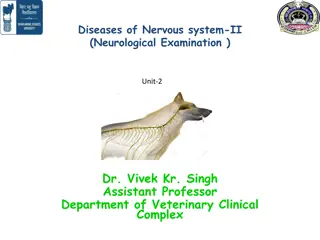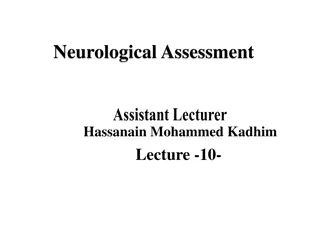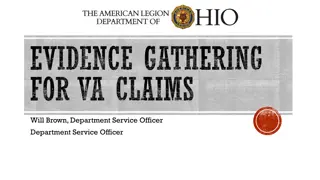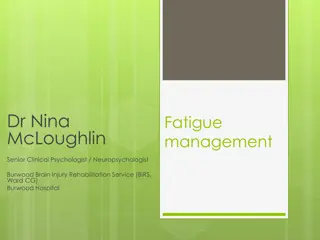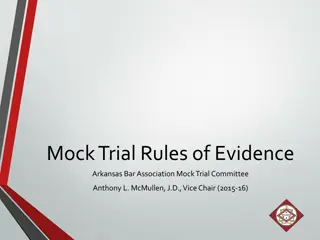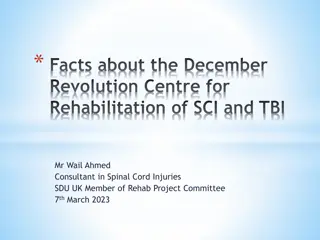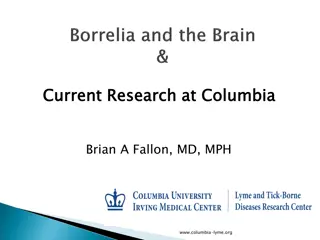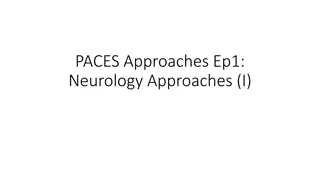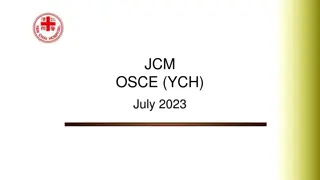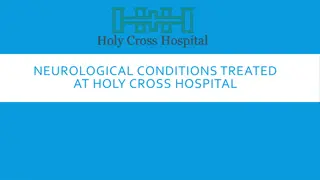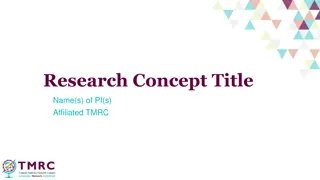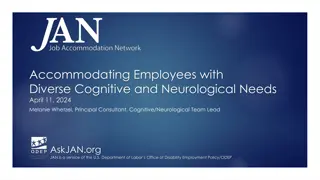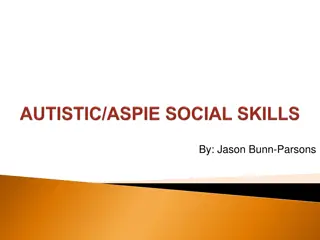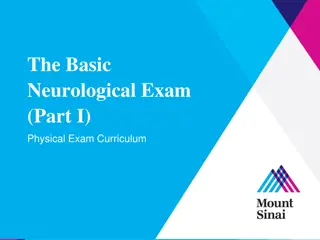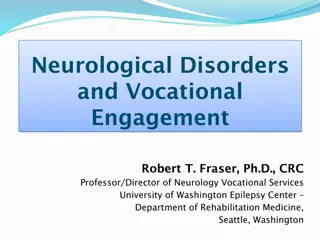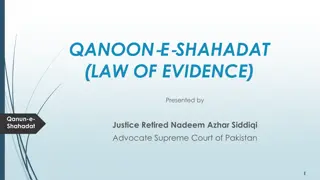The Role of Artifacts and Evidence in Educator Evaluation and Support
Exploring the role of artifacts and evidence in educator evaluation, this content covers the three categories of evidence required by the Oregon Framework. It delves into the efficient process that reduces redundancy, essential components of SLG goals, and the types of evidence relevant to professio
0 views • 15 slides
Understanding Impression Evidence Collection in CSI Investigations
Impression evidence plays a crucial role in investigations, including shoeprints, tool marks, tire tracks, bite marks, and riffling marks on bullets. This evidence can be collected in 2D using photography or tape lifts, and in 3D through casting methods. Differentiating between class and individual
0 views • 21 slides
Helpful Information About Submitting Evidence to the Crime Lab.
Helpful information about submitting evidence to the Nebraska State Patrol Crime Lab's Evidence Section. Learn about the NSP 750 Evidence Submittal Form, submission process, and guidelines for resubmissions. Ensure all necessary details are provided for proper analysis of evidence.
5 views • 16 slides
Illegally obtained evidence
Illegally obtained evidence refers to evidence acquired through unlawful means, such as searches without warrants or extraction under duress. The Fruit of the Poisonous Tree doctrine renders evidence inadmissible if derived from illegally obtained evidence. The Exclusionary Rule prohibits the use of
2 views • 30 slides
Legal and Ethical Challenges in Determining Death Using Neurological Criteria
Explore the intricate legal and ethical dilemmas surrounding the determination of death using neurological criteria. Delve into cases like the Archie Battersbee Case, various legal challenges, and societal expectations regarding defining life and death. Understand the complexities faced in making cr
5 views • 38 slides
Airway Management in Neurological Patients: ENLS Version 5.0
Explore the essentials of airway, ventilation, and sedation in neurological patients through the ENLS Version 5.0 content. Understand the challenges and goals of managing airways in critical situations such as trauma or respiratory distress. Learn about common indications for intubation and the impo
0 views • 37 slides
Evidence Room Management
Explore the intricacies of evidence room management in a law enforcement setting, including the roles of individuals like Greg Van Buskirk, differences in crime scene management between large and small departments, the distinction between property and evidence, the importance of maintaining chain of
0 views • 8 slides
Looking for the best Physical Therapist in Hazlemere
Are you looking for the Best Physical Therapist in Hazlemere? Then visit Bucks Neuro Physio. They are passionate about providing personalized physiotherapy at home, specializing in neurological conditions. They are a group of experienced physiotherapists who provide quality physiotherapy. They passi
0 views • 6 slides
SIG Meeting for Driving and Neurological Conditions - WFNR 2024
Explore the intersection of driving and neurological conditions at the Special Interest Group (SIG) meeting in November 2023. Discover the importance of driving for mobility and independence, along with future goals to expand the SIG's reach. Engage in workshops, discussions, and exhibitions focusin
0 views • 5 slides
Enhancing Evidence Collection in Education
Explore the importance of minimizing bias in evidence collection, review different types of evidence, identify strategies to collect quality evidence effectively, understand common biases affecting assessment, and learn to spot and address biased statements. Practice eliminating biased language and
0 views • 11 slides
Understanding Evidence in Investigations
Learn about the principles and types of evidence in investigations, including inculpatory and exculpatory evidence, physical, documentary, demonstrative, and verbal evidence. Explore sources of evidence and the significance of collecting relevant information to ensure a fair investigative process.
0 views • 14 slides
Understanding Title IX Investigations and the Role of Evidence Collection
The purpose of a Title IX investigation is to collect relevant evidence, both inculpatory and exculpatory, to allow for impartial decision-making regarding reported sexual harassment cases. Parties involved must receive sufficient notice and have opportunities to participate, present statements, and
1 views • 32 slides
Understanding Context Evidence in Legal Proceedings
Context evidence in legal proceedings refers to evidence of acts not charged in the indictment, used to provide a background for understanding specific allegations. This type of evidence is often relied upon by the prosecution to explain events or behaviors that may seem isolated or surprising. It i
1 views • 13 slides
Understanding Evidence-Based Medicine and Clinical Decision-Making
European Patients Academy on Therapeutic Innovation emphasizes the importance of Evidence-Based Medicine (EBM) in providing optimum clinical care. EBM involves systematic review and utilization of clinical research for informed decision-making, benefiting patients in disease management and treatment
7 views • 20 slides
Understanding Spina Bifida Occulta: Symptoms, Causes, and Treatment
Spina Bifida Occulta is a common neural tube defect, usually mild and hidden. It affects the lumbosacral area, characterized by vertebral arches not fusing, resulting in spinal processes defects without external protrusion. Common features include dimples, hairy patches, and normal spinal cord. Neur
0 views • 10 slides
Understanding Relevance, Credibility, and Weighing Evidence in Decision-Making
Explore the importance of relevance and credibility in evidence assessment, the role of hearing panels in evaluating evidence fairly, and the responsibilities they hold. Learn about presenting relevant evidence, policy analysis, and identifying irrelevant evidence to ensure a thorough review process
6 views • 32 slides
Mastering Claims, Evidence, and Warrants for Persuasive Writing
Understanding the concepts of claims, evidence, and warrants is crucial for constructing persuasive arguments. Claims represent positions to persuade, evidence supports claims with facts, and warrants bridge the gap between evidence and claims. An exercise is outlined to help practice forming claims
0 views • 8 slides
Understanding Neurological Conditions: Clinical Slides and Symptoms
This presentation covers various neurological conditions including oculomotor nerve palsy, Horner's syndrome, and shingles caused by the varicella-zoster virus. It explains the symptoms, causes, and characteristics of these conditions with accompanying clinical slides. Learn about the signs and symp
0 views • 24 slides
Understanding Biased Assimilation and Attitude Polarization in Social Disputes
People with strong opinions on complex social issues tend to interpret evidence in a biased manner, accepting confirming evidence readily while subjecting disconfirming evidence to critical evaluation. This can lead to increased polarization rather than narrowing of disagreement when exposed to the
0 views • 20 slides
Transformation of Quality Assessment Framework in Healthcare
The healthcare quality assessment framework is evolving with a new strategy focused on data-led, people's experiences, care integration, and safety culture. The current framework is transitioning towards a new approach by late 2023, incorporating separate registration and monitoring processes, five
0 views • 14 slides
Comprehensive Guide to Neurological Examination in Dogs and Cats
Neurological examination in dogs and cats is crucial for diagnosing nervous system disorders. This guide covers the recording of history, general and detailed clinical examinations, examination of CSF, radiographic examination, EEG, and brain biopsy. It includes assessing history, mental state, move
0 views • 20 slides
Understanding Neurological Exams: Assessment and Procedures
A neurological exam evaluates a person's nervous system using various instruments in a healthcare setting. This comprehensive assessment includes evaluating motor and sensory functions, balance, coordination, mental status, reflexes, and cranial nerve functionality. Assessing mental status involves
0 views • 18 slides
Understanding Evidence Gathering for VA Claims with The American Legion Department of Ohio
Evidence is crucial for VA claims, and it can come in various forms such as documents, written statements, photos, and video recordings. The framework for evaluating evidence includes factors like relevance, competence, credibility, and weight. Understanding the types of evidence, forms of relevance
0 views • 14 slides
Practical Techniques for Managing Fatigue in Clients with Neurological Conditions
This session by Dr. Nina McLoughlin, a Senior Clinical Psychologist/Neuropsychologist, focuses on practical fatigue management techniques for clients with brain injuries, strokes, and other neurological conditions. Emphasizing the importance of addressing sleep as the primary intervention point, the
0 views • 33 slides
Understanding Mock Trial Rules of Evidence
Mock Trial Rules of Evidence are crucial for determining the admissibility of testimony and evidence in a trial setting. Students preparing for cases need to assess evidence admissibility, make timely objections, and be prepared to defend testimony. The rules cover objections, specific objections ty
0 views • 36 slides
Understanding Spasticity and Increased Muscle Tone in Neurological Disorders
Spasticity and increased muscle tone are common features in neurological disorders, characterized by hyperactive stretch reflexes and muscle contractions. Spasticity is velocity-dependent and associated with upper motor neuron lesions, leading to increased resistance to passive movement. Rigidity, o
0 views • 28 slides
Development of a Tertiary Neurological Rehabilitation Centre in Sudan
The December Revolution Centre for Rehabilitation of Traumatic Spinal Cord and Brain Injuries at Khartoum Teaching Hospital addresses the lack of holistic patient-centered rehabilitation services in Sudan. Following the December 2018 Revolution, the need for specialized care for victims with spinal
0 views • 11 slides
Neurological Complications of Lyme Disease: Symptoms and Markers
In patients with Lyme disease, various neurological complications can arise, including inflammation of brain tissues, cranial nerves, and membranes around the brain. Symptoms range from headaches and neck stiffness to cognitive changes, mood swings, and sensory numbness. Specific markers, such as el
0 views • 24 slides
Approach to Headache and Neurological Symptoms in Clinical Practice
Comprehensive overview of primary and secondary headaches, red flags, and patterns in neurological presentations. Discusses distinguishing features, differential diagnoses, and management approaches for various conditions affecting the central and peripheral nervous system. Highlights important cond
0 views • 16 slides
Practice and Procedure in Judicial Review: Factual Evidence and Interveners
The content provides valuable insights into the practice and procedure regarding factual evidence and interveners in judicial review cases. It covers general rules, recent cases, applications for oral evidence, questioning witnesses, opinion evidence, and the role of interveners. Key points include
0 views • 28 slides
Clinical Cases Review: Neurological, Toxicological, and Orthopedic Presentations
Explore a collection of intriguing clinical cases including neurological symptoms, toxic ingestion, loss of consciousness, and orthopedic injuries. From CT findings to treatment modalities, delve into differential diagnoses, imaging investigations, risk factors, complications, and management strateg
0 views • 13 slides
Comprehensive Neurological Care at Holy Cross Hospital
This content provides detailed information on the neurological conditions treated and managed at Holy Cross Hospital, including stroke, acquired brain injury, multiple sclerosis, and more. It also discusses the key principles of care focusing on person-centered approaches and covers various aspects
1 views • 72 slides
Approach to Acute Flaccid Paralysis in Children: Evaluation and Management
Acute muscular weakness in children is a neurological emergency defined by sudden onset muscle weakness or paralysis in less than 5 days. When evaluating a child with acute flaccid paralysis, consider factors like onset rhythm, associated symptoms, and past medical history. A thorough physical and n
0 views • 45 slides
Understanding Hallucinations through Ecological Perception and Neurological Evidence
Exploring the phenomenon of hallucinations in relation to the ecological approach to perception, direct vs. indirect realism, and the concept of affordances in visual perception. Delving into the types of hallucinations, such as visual and complex hallucinations, and conditions like Charles Bonnet S
1 views • 16 slides
Collaborative Research Project on Neurological Disorders
This research project focuses on studying a specific neurological disorder with the overarching goal of advancing scientific knowledge in this field. The Principal Investigator and the affiliated TMRC will collaborate to investigate hypotheses, primary outcomes, and study population, aiming to provi
0 views • 8 slides
Accommodating Employees with Diverse Cognitive and Neurological Needs - Training Overview
Explore the complexities of accommodating cognitive and neurological disabilities in the workplace, such as mental health conditions, ADHD, brain injuries, and seizure disorders. Learn effective solutions for maintaining productive employees with diverse needs in this informative session.
0 views • 25 slides
Understanding Autism: Embracing Neurodiversity
The inherent needs and desires of Autistics/Aspies are no different from those of any other human beings, despite facing unique challenges in getting them met. This atypical neurological connectivity paradox leads to heightened activity in certain brain areas and decreased activity in others. Unders
0 views • 85 slides
Comprehensive Guide to Neurological Exams
This guide provides a detailed overview of neurological exams, focusing on components such as cognition, motor function, and cranial nerves. It covers essential aspects like mental status, reflexes, sensation, and gait assessment. The importance of thorough examination in primary care settings is em
0 views • 29 slides
Understanding Neurological Disorders and Vocational Rehabilitation
Explore the vocational profile of major neurological conditions such as Traumatic Brain Injury, Epilepsy, Stroke, Multiple Sclerosis, and Autism. Learn about the work return rates, predictors of successful employment, and the mission of NVSU in providing employment services to individuals with neuro
0 views • 28 slides
Understanding Qanun-e-Shahadat: Law of Evidence in Pakistan
Qanun-e-Shahadat Order 1984 replaced the Evidence Act of 1872 in Pakistan, aiming to align the law of evidence with Islamic principles. This law is crucial for judicial proceedings, governing the admissibility of oral and documentary evidence, primary and secondary evidence, and resolving conflicts
0 views • 22 slides


